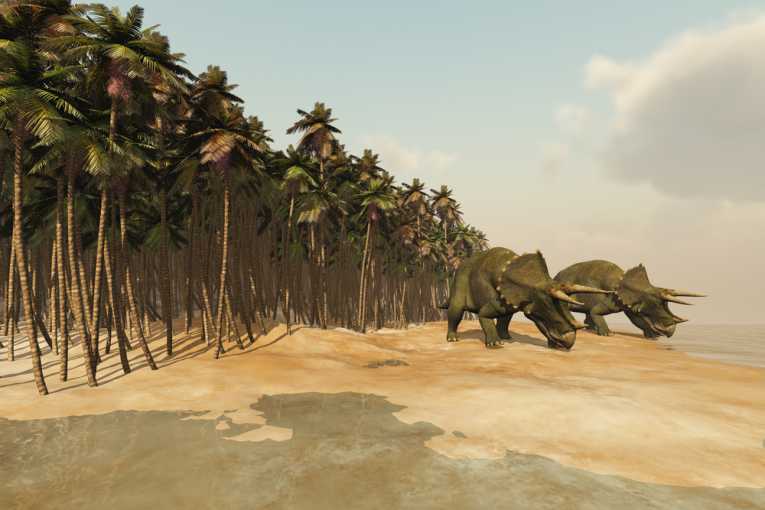In a recent conversation, one of my friends - let's call him X - argued that we waste too much money in pointless scientific studies. I mean - he said - who cares what killed the dinosaurs? They have been dead for a long time, period.
My friend X is wrong, and here's an example why:
About 70 million years ago, the Earth was going through a greenhouse phase otherwise known as the Late Cretaceous Epoch. (This was back when mammals were tiny creatures scurrying around, trying not to get trampled by huge reptiles, and some five million years before a meteorite slammed down on our planet and caused a mass extinction.)
There was a lot of carbon dioxide in the atmosphere and the resulting extra warmth was distributed all over the planet, in ways which scientists still don't clearly understand.
Scientific research, for example, suggests that circulation patterns of water masses in the ocean influence temperatures around the world, but it also indicates that changes in temperature alter ocean circulation patterns. This is just one of many riddles in climate science, and part of the reason why we don't know much about the inner workings of the Late Cretaceous climate - or ours, for that matter.
Sometime toward the end of the Late Cretaceous Epoch, two water masses in the Atlantic Ocean apparently decided to change tack. Let's call them Water Mass A (in the south) and Water Mass B (in the north). From now on, after sinking to the ocean floor, Water Mass B made its way south until it ended up in the tropical Atlantic, where Water Mass A should have been. Water Mass A, in turn, flowed north and replaced Water Mass B on the surface around Greenland. This new circulation pattern warmed the North Atlantic, but the rest of the planet cooled. At least, this is the theory proposed by a new study sponsored by the National Science Foundation and recently published in the journal Nature Geoscience by scientists from the University of Missouri, the University of Florida, and the University of Manchester.
Whether or not the theory is correct doesn't matter too much. The greatest importance of this study lies in what it can tell us about our current predicament - a man-made greenhouse phase with none of the patience and resilience of a natural geological climate cycle. If we can understand the climate mechanisms of the Late Cretaceous Epoch, then perhaps we can figure out how exactly our own warmer environment will behave, and perhaps we can even find ways to prevent it or, at least, to protect ourselves.
In other words, X: Who cares what killed the dinosaurs? Uh... We should.










